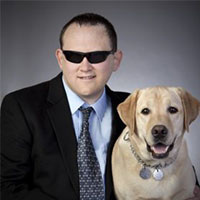 St Joseph County, IN Misdemeanor Lawyers
St Joseph County, IN Misdemeanor Lawyers
Not enough matches for St Joseph Misdemeanor lawyer.
Below are all St Joseph lawyers.
Sponsored Lawyers
1-10 of 54 matches
Accident & Injury, Criminal, Divorce & Family Law, Employment, Estate
As a person who has experienced a disability as well as the trials and tribulations that go along with it, I know how crucial fair treatment before the law can be. I represent clients like you to obtain justice on their behalf. Justice is not a commodity, it's a right. You won’t find a more determined advocate. Lawsuits can be intimidating. But, no corporation or person is too large to be above the law. Remember, the bigger the adversary, the sweeter the victory.
(more)Accident & Injury, Personal Injury, Car Accident, Medical Malpractice, Wrongful Death
Attorney Jay Lauer has been practicing law in the state of Indiana for 40 years, but his love and passion for the law actually goes back further than that. Jay's journey into law began when he decided to go to school at Valparaiso in 1972. As an integral member of the track team, Jay worked hard to split his time between studying and running. As a political science major, his classes touched on both law and theology -- a combination that quickly ignited a passion and drive to help people in need. Upon graduation in 1975, Jay immediately decided to enter law school and was quickly accepted into the Valparaiso University School of Law. From there, Jay decided to forego any future as a track athlete so that he could focus all of his time and energy on studying the law. In just three short years, Jay was able to graduate with his Juris Doctorate while also passing the Indiana Bar -- all in the year of 1978. Through hard work and relentless dedication, Jay was also admitted to the U.S. Bankruptcy Court, Northern District in the same year, providing him the opportunity to officially begin practicing law. Soon after, Jay caught the attention of the Legal Services of Northern Indiana where Jay would be brought on board to focus on family law. For 10 years Jay would work for the Legal Services of Northern Indiana, broadening his experience and knowledge to extend beyond family law and into the areas of personal injury and criminal defense. After over a decade of working with legal services, Jay decided it was time to strike out on his own so that he could focus his services on an area close to home -- the Michiana region. After careful consideration and planning, Jay founded his very own firm, Jay Lauer Attorney at Law, in South Bend, Indiana. With his own firm, Jay felt he could now focus on the areas of the law that are not only best suited to his strengths but areas that could also help make a difference in the Northern Indiana community. Since the firm opened its doors in 1988, Jay has helped countless clients deal with issues of personal injury, criminal defense, and family law. Focusing on these areas has allowed Jay to use the extensive knowledge gathered over the years to help clients through difficult situations when they often felt like they had nowhere else to turn. Through it all, Jay Lauer believes that every person, regardless of circumstance, has the right to have their case heard. If you or someone you love is facing a difficult legal issue in the Michiana region, we invite you to reach out to our firm to learn more about Jay Lauer's experience and commitment to making a difference in the South Bend community.
(more)





